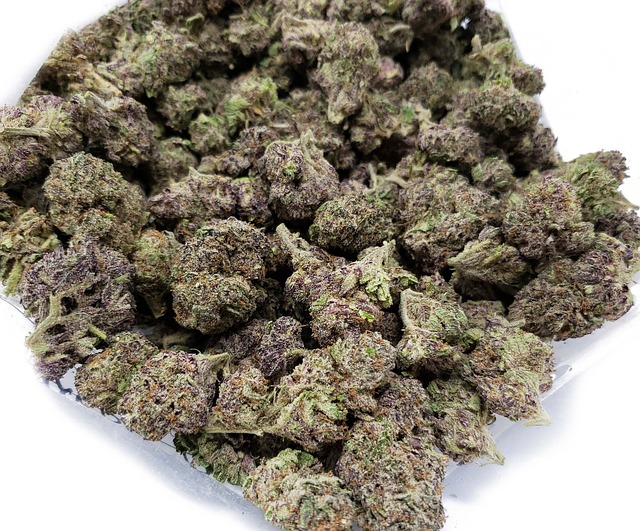2023 marked a significant year for THCA (Tetrahydrocannabinolic Acid), with increasing interest and research into its potential health benefits, particularly in Georgia where it is legally recognized under the 2018 Farm Bill and the Georgia Industrial Hemp Act. THCA, a non-psychoactive precursor to THC, is gaining attention for its anti-inflammatory, neuroprotective, and antiemetic properties. In Georgia, THCA's legality as smokable hemp buds adheres to state regulations mandating THC levels at or below 0.3% on a dry weight basis. This legal distinction makes THCA an attractive option for Georgians seeking the therapeutic effects of cannabis without psychoactive side effects. The non-psychoactive nature of THCA, along with its potential to interact with the endocannabinoid system and support brain health by inhibiting reactive oxygen species and reducing glutamate excitotoxicity, positions it as a promising area of research and therapeutic application within the state's evolving cannabis landscape.
Discover the burgeoning potential of THCA flowers, a raw form of cannabis that’s gaining recognition for its diverse wellness benefits. With the increasing interest in THCA’s effects and its legal status in Georgia, this article delves into the multifaceted advantages of this non-psychoactive compound. From its distinct properties to its role in the entourage effect, we explore how THCA may support health and offer a range of therapeutic benefits. As we navigate through cultivation practices, legal considerations, and consumption methods in Georgia, we also examine the scientific evidence supporting THCA’s healing potential. This comprehensive guide aims to clarify the facts and dispense myths surrounding THCA flowers, ensuring an informed understanding of their place within the evolving cannabis industry. Join us as we unravel the implications of THCA flowers in Georgia’s legal landscape, providing valuable insights for both enthusiasts and newcomers alike.
- THCA Flower: Unveiling the Potential of Cannabis' Raw Form
- The Rise of THCA: Understanding Its Legal Status in Georgia
- THCA vs. THC: What Sets Them Apart?
- Therapeutic Properties of THCA Flowers
- Antiemetic and Neuroprotective Effects of THCA
THCA Flower: Unveiling the Potential of Cannabis' Raw Form
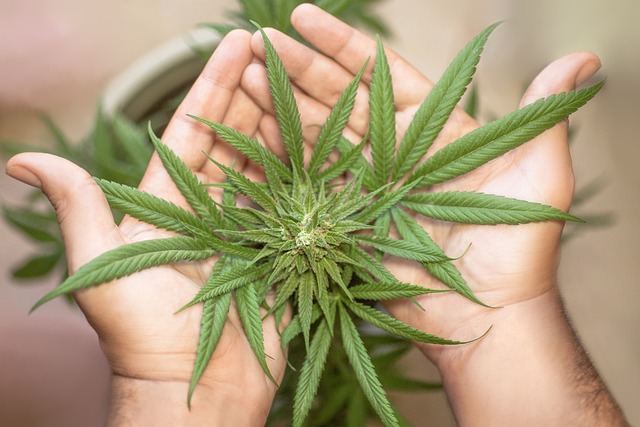
Discovering the potential of cannabis’ raw form, THCA flower, has garnered significant attention within the realm of natural wellness. Tetrahydrocannabinolic acid (THCA) is the non-psychoactive precursor to delta-9-tetrahydrocannabinol (THC), the compound renowned for its psychoactive effects in cannabis. In Georgia, where regulations have evolved to include medical cannabis derivatives, THCA flower has emerged as a subject of intrigue and exploration due to its unique profile. Unlike its psychoactive counterpart, THCA interacts with the body’s endocannabinoid system without the ‘high’ associated with THC. This has led researchers and users alike to investigate its potential therapeutic properties, including its anti-inflammatory and neuroprotective effects, which are under study for various conditions. The legal status of THCA flower in Georgia allows consumers and patients to experiment with this form of cannabis, often in the form of smokable hemp buds, to harness its benefits while adhering to state laws. As such, the THCA legal landscape in Georgia presents an opportunity for those interested in the medicinal aspects of cannabis without the psychoactive component, highlighting a growing area of research and application in the field of alternative medicine.
The Rise of THCA: Understanding Its Legal Status in Georgia
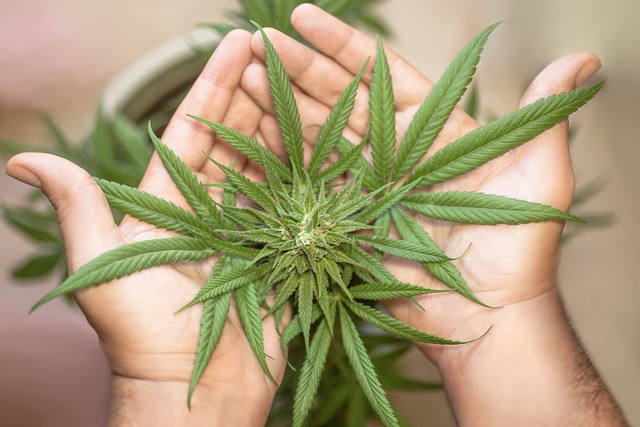
2023 has seen a significant uptick in discussions and research around THCA, or tetrahydrocannabinolic acid, as its potential health benefits gain attention. In Georgia, the legal status of THCA is subject to evolving state laws and federal regulations. While hemp-derived products, including those containing THCA, were legally allowed under the 2018 Farm Bill, their legality in Georgia is influenced by the Georgia Industrial Hemp Act. This act differentiates between hemp and marijuana based on THC concentration levels, defining hemp as cannabis that contains no more than 0.3% THC on a dry weight basis. As such, THCA-rich products are legal in Georgia provided they meet this THC threshold. However, it’s crucial for consumers to stay informed, as state laws can change, and interpretation of these laws may vary. The rise of THCA in Georgia is indicative of a broader trend towards exploring the full spectrum of cannabinoids for their potential wellness benefits, with THCA being highlighted for its preliminary anti-inflammatory properties and neuroprotective effects. Consumers interested in THCA’s benefits should seek products that are compliant with state and federal laws to ensure legal use and safety.
THCA vs. THC: What Sets Them Apart?

Delta-9-tetrahydrocannabinolic acid (THCA) and delta-9-tetrahydrocannabinol (THC) are both prominent cannabinoids found in the Cannabis sativa plant. While THC is the most well-known compound for its psychoactive effects, THCA exists in raw or uncured cannabis flowers and possesses distinct characteristics that set it apart from its decarboxylated form, THC.
In their natural state, THCA and CBDAs (cannabidiolic acid) are both non-psychoactive. THCA undergoes a process called decarboxylation when heated, which transforms it into THC. This transformation is what activates the psychoactive properties of cannabis. Legally speaking, in states where cannabis has been legalized for medical or recreational use, such as Georgia where certain forms of CBD and THC are legal under specific conditions, understanding the nuances between THCA and THC becomes particularly relevant. In Georgia, for instance, THCA might be found in hemp-derived products that contain less than 0.3% THC on a dry weight basis, aligning with federal guidelines.
Research suggests that THCA may offer potential therapeutic benefits, including anti-inflammatory and neuroprotective effects, without the high associated with THC. This distinction is significant for consumers seeking the wellness benefits of cannabis without psychoactive impairment. The legal landscape in Georgia allows for exploration into these benefits, provided that products containing THCA comply with state laws regarding cannabinoid concentrations and possess the necessary certifications. As such, consumers in Georgia have access to a range of hemp-derived products containing THCA, which can be a beneficial addition to their wellness routine.
Therapeutic Properties of THCA Flowers
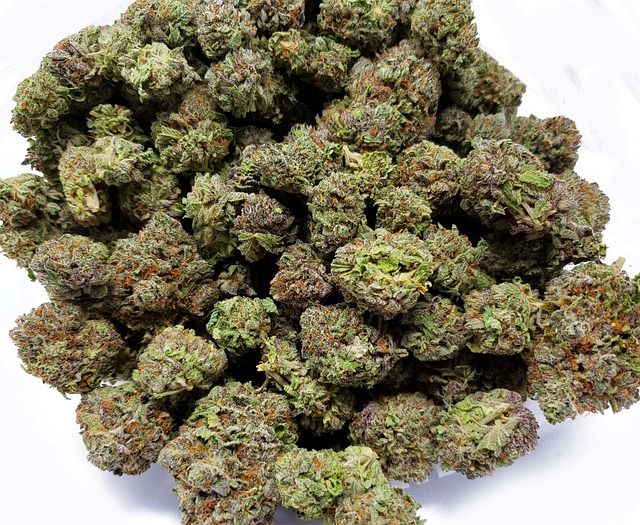
THCA, or Tetrahydrocannabinolic Acid, is the raw and natural precursor to THC, the psychoactive compound found in cannabis that is well-known for its therapeutic properties. While the legal status of cannabis varies across different states within the U.S., THCA flowers are recognized as legal in Georgia under certain conditions. These flowers contain the non-psychoactive acid form of THC and have garnered attention for their potential health benefits without the psychoactive effects associated with its decarboxylated counterpart, THC.
Research suggests that THCA flows may offer a range of therapeutic properties. They are often cited for their anti-inflammatory and neuroprotective effects, which could be beneficial in managing pain and certain neurological conditions. Additionally, preclinical studies indicate that THCA might have antiemetic qualities, helpful for individuals experiencing nausea or vomiting. Due to its legal status in Georgia, residents interested in the potential wellness applications of THCA flowers can explore this non-intoxicating form of cannabis with guidance from healthcare professionals. As interest in cannabinoids continues to grow, ongoing research is crucial to further elucidate the full spectrum of benefits that THCA may offer.
Antiemetic and Neuroprotective Effects of THCA
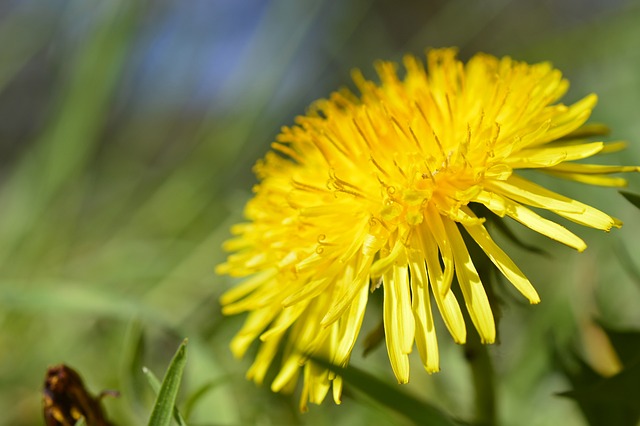
THC acid, known as tetrahydrocannabinolic acid (THCA), is a naturally occurring compound found in hemp and cannabis plants that has garnered attention for its potential health benefits. As of the current legal landscape in Georgia, where THCA is legal, consumers are increasingly exploring its properties. One of the notable effects of THCA is its antiemetic property, which can alleviate nausea and vomiting. This makes it a promising candidate for individuals undergoing chemotherapy or those suffering from conditions like anorexia nervosa, where these symptoms are prevalent. The antiemetic action of THCA is believed to be linked to its interaction with the body’s endocannabinoid system, specifically the CB1 receptors found in the brain and nerves, which play a role in regulating nausea and vomiting.
Furthermore, THCA possesses neuroprotective properties that are of significant interest to researchers. Studies suggest that THCA may offer protection against neurodegenerative diseases by inhibiting the production of harmful compounds known as reactive oxygen species (ROS) and reducing glutamate excitotoxicity. This is particularly relevant given the increasing prevalence of conditions like Alzheimer’s and Parkinson’s disease, where oxidative stress and neuronal damage are hallmarks. The potential of THCA to support brain health is an area of active research, with its legal status in Georgia facilitating such investigations and providing access for those interested in exploring its benefits as a supplement or therapeutic agent.
THCA flower, found in the raw form of cannabis, has emerged as a subject of interest due to its distinct therapeutic properties and potential benefits. As discussed, THCA, which is non-psychoactive, offers a range of effects, including antiemetic and neuroprotective benefits, making it an intriguing option for those seeking alternatives to traditional treatments. The legality of THCA in Georgia has seen progress, with specific regulations now in place that allow for its use within certain parameters. It’s clear that THCA presents a promising avenue for research and therapeutic application. As interest and understanding of this compound grow, it’s anticipated that further insights will be uncovered, potentially expanding the scope of its legal use and the breadth of conditions it may benefit.
